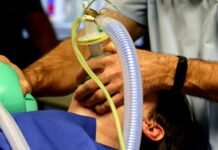We’ve all seen how technological advancement has impacted the globe in many ways. This is the advancement that has driven the rise of civilizations since the stone age. From stone tools to the exploration of the solar system, our technology is what propels us forward. And sometimes we have to change our habits in order to let this advancement take place.
The healthcare industry is one that has benefited tremendously from the advancements of medical science, and from computer technology as well. In fact, even virtual ICU has already begun being tested. And as medical technology becomes more robust and advanced, it becomes further integrated into our healthcare system. But how does this affect healthcare jobs?
As a physician looking for work in 2022, you have to be up to speed on the technology that’s being implemented into healthcare systems across the country. But you also need to understand how this can affect the physician’s job market as well.
In the following, we’ll explore how medical technology is altering the healthcare job market.
Automation
Some studies suggest that as much as one-third of all job duties will be automated by 2040. And this is startling news for those looking for jobs where automation is being tested.
It’s also been reported that nearly 75 percent of all medical students have shifted their studies to include advanced statistics, population health, coding, and studies surrounding the use of medical AI. Correspondingly, as the healthcare landscape changes due to technological advancement, those who don’t prepare themselves for the use of this tech may have difficulty finding work within the next 20 years.
In addition, the need to understand advanced medical tech doesn’t stop at medical doctors. Even those looking for jobs in family health, jobs as nurses, and especially tech-related jobs need to be aware of the rapid advancement of technology if you hope to land a job in the healthcare industry in the future.
Preparedness
As mentioned, the advancement of technology has reshaped the educational needs of medical students across the globe. And as a result of rapid advancement, many healthcare providers believe that they are not prepared to implement newer innovations.
For example, in a survey conducted by Stanford Medicine, 44 percent of the physicians surveyed claimed that their education was not very helpful, or “not helpful at all” when regarding the new technological innovations being implemented in today’s healthcare landscape. Further, only 18 percent of physicians surveyed claimed that their education was “helpful.”
For example, a few tech advancements that physicians need to be knowledgeable of, including the following:
- Digital wearables
- Genetic coding devices
- Wireless implants
- AI monitoring
- Telehealth technology
This lack of preparedness and the high number of physicians who feel that they simply can’t keep up with the pace of technology is alarming for the healthcare industry as a whole, especially when it comes to the job search.
This is because most healthcare companies are more apt to hire those with a comprehensive education on new medical technology in the place of those who haven’t received such training.
Archived Knowledge
Even with the prevalence of certain health websites, and the ability to “Google” everything we want to find the answers for, many people are relying on digital archives to assess their health conditions instead of seeing an experienced physician.
For example, in today’s world when someone has a cough or a pain, simply looking up the symptoms they can get a fairly good idea of what their illness or condition might be. However, this does not substitute for a proper medical diagnosis.
New advancements in healthcare records, archived knowledge, and recommended diagnoses allow patients to educate themselves on their symptoms. And some medical professionals believe that as these tools become more integrated into the public sphere, they will diminish the need for experienced doctors. Correspondingly, if there is less of a need for more doctors in the healthcare system, there will be less work available for those with advanced medical training. And though this is a theory posited by medical professionals studying future trends, it’s only a matter of time before we find out the exact nature of the impact.
We’ve reached the point where we’ve explored our own solar system and have developed telescopes that can see into the vastness of interstellar space. And as we progress with our technology, every industry needs to be prepared, especially those seeking jobs in healthcare, or in any industry which relies on advanced science.


























